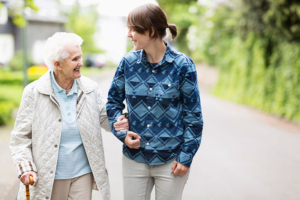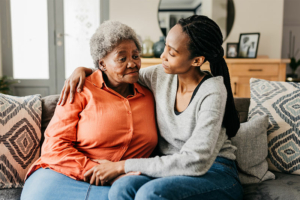Senior Falls Are on the Rise. Here’s Why—and What You Can Do.

Learn why senior falls are escalating and what you can do to protect those you love.
Falling is something we hardly ever think about until it happens. A simple misstep, a slippery floor, or even just standing too quickly can become a life-altering event. And yet, falls are increasing, especially among older adults. What’s remarkable isn’t just how common they have been, but how the risk appears to be increasing in spite of advances in technology, healthcare, and safety. So why do senior falls keep getting worse, and what can we do to avoid them?
Contemporary Lifestyles and Inactivity
One contributing factor is how current lifestyles have evolved. Sedentary habits, like spending hours commuting, sitting at desks, or watching screens, result in poorer balance and weakened muscles. Without regular activity to help keep the body engaged, reflexes dull, and simple movements can feel unsteady. The irony is that while modern life brings convenience, it also leads to physical inactivity, which makes falling much more likely. I have noticed this in my own life! After a long day sitting at my desk, even standing up can feel awkward and stiff.
Underlying Health Problems
Health issues also play an enormous role. Issues like diabetes, high blood pressure, and arthritis impact mobility and coordination, while medications to treat these illnesses could cause side effects like dizziness or fatigue. These factors combine to create a perfect storm, where health management itself becomes a fall risk.
Environmental Dangers
Another aspect to consider is the environment. Many homes are full of hidden hazards that often go unnoticed until it’s too late. Slippery throw rugs, uneven surfaces, poor lighting, and cluttered spaces, are common culprits. For people who reside in older homes or apartments, stairs and narrow hallways can be tricky to navigate safely.
Mental and Sensory Changes
What’s surprising is exactly how much mental and sensory health contribute to falls. Mild cognitive impairment, changes in vision, and even slower reflexes can reduce awareness of potential risks or delay reactions when something unexpected occurs. It’s not merely about physical strength but the way the brain and the body communicate.
Steps to Stay Safe
To manage these risks, the following steps can make a big difference:
- Stay Active: Incorporate balance and strength exercises, like tai chi or yoga, to improve stability and confidence. Even daily walks can help.
- Improve Home Safety: Clear clutter, secure loose rugs, install better lighting, and consider grab bars in bathrooms or along stairways.
- Assess Fall Risk: This free checklist will help determine a senior loved one’s risk of falling.
- Wear Proper Footwear: Choose shoes with good grip and support to reduce slipping hazards.
- Get Regular Check-Ups: Regularly review medications with a health care provider to learn about potential side effects, and address vision or hearing changes as they arise.
Falling does not have to define life as we grow older. Taking these simple, proactive steps can help ensure that each day is lived with balance—both physically and emotionally.
For a free in-home consultation and tips about how to minimize the likelihood of a fall for someone you love in Fort Lauderdale, Weston, Parkland, and throughout Broward County, call Responsive Home Care at 954-486-6440.

